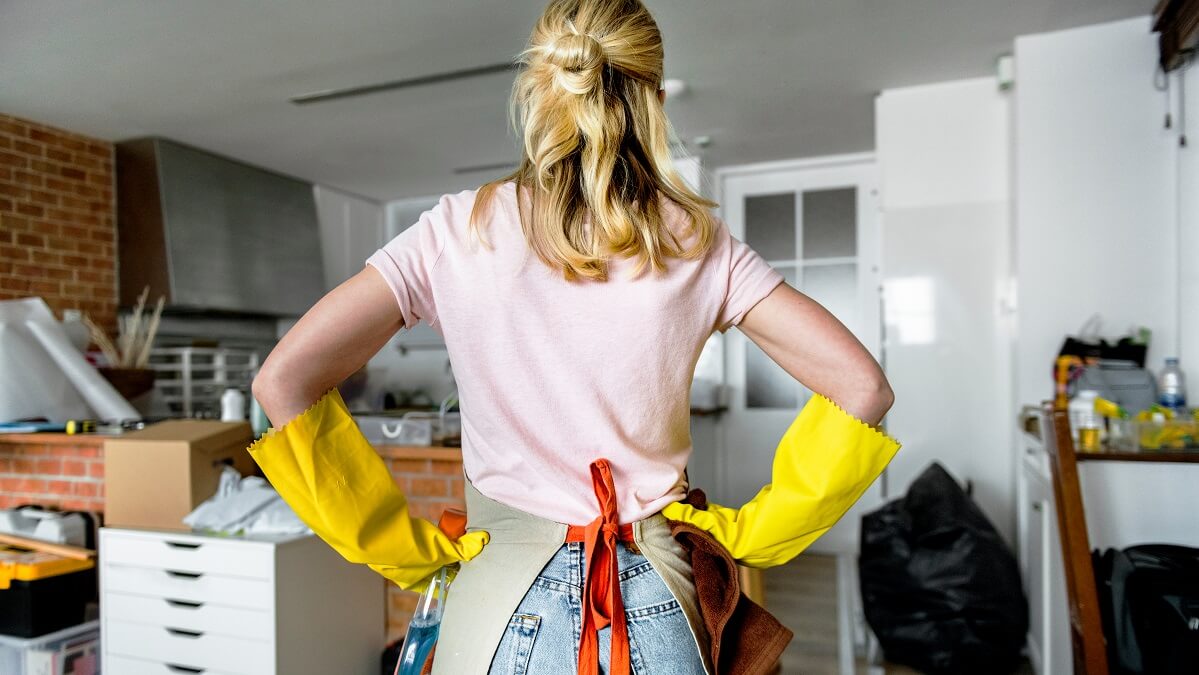Levels of cleanliness are often subjective. For instance, some people wear something once and feel compelled to throw it in the laundry, while others are a bit less particular and don’t mind wearing it a few times. But, when it comes to your home, there’s a big difference between ‘clean’ and ‘clean enough’.
We’ve all seen what happens when we leave the vacuuming for another day but if you took a closer look at some surfaces around your home, you might be quite alarmed. Microscopic bacteria, viruses, soil, fungi, animal dander, pollen, sweat and skin cells can often be found on surfaces around the home.
According to research in Popular Science, the life span of a germ varies greatly depending on the bacteria, or virus, and the surface. E. coli (intestinal bacteria that can make you sick) can live for a few hours to a full day, while norovirus (or the stomach flu) can live for days or weeks.
To keep your home safe from these and other bacteria, it’s important to clean all surfaces regularly. This includes countertops, door handles, light switches, and any other surface that you or your family members touch regularly.
Read: Thirty-day deep cleaning challenge
Microbiologist Jason Tetro, author of The Germ Code and The Germ Files, and cleaning expert Becky Rapinchuk, author of Simply Clean and The Organically Clean Home, offer their advice on how often places and things around your home should be cleaned.
How often should you change the sheets?
Ms Rapinchuk recommends changing your sheets once a week and Mr Tetro says you should never let them go longer than two weeks without a wash.
The majority of bacteria that end up on our sheets is environmental and mostly harmless (such as dust). But the dirt and oils from your skin that accumulate on unwashed sheets can contribute to conditions such as acne and dandruff
How often should you disinfect your sink?
It is recommended to clean and disinfect your sinks every day. Even if they appear to be clean. Mr Tetro says bathroom sinks can become dirty due to faecal matter (from washing your hands after you use the bathroom).
And food-borne bacteria, such as E. coli and salmonella, can easily contaminate kitchen sinks, especially if raw meat is handled. Water then splashing onto your hands from the sink can cause your hands to become contaminated as well. To ensure safety, it is best to wipe down your sinks daily.
Read: Kitchen cleaning tips that save time and money
How often should you vacuum and wash floors?
You should vacuum once or twice a week (more often in households with pets) to prevent dust, dirt, and allergens. Hard floors should be thoroughly washed or steamed every two weeks, with extra attention paid to the kitchen due to potential contamination from food bacteria.
How often should you clean the bathroom?
Mr Tetro claims your bathroom is the ultimate bacteria host; E. coli can be found within six feet of the toilet and in the sink.
To keep it at bay, disinfect the toilet, sink and bathtub or shower weekly. It’s easy to skip over the shower curtain, but this should also be disinfected weekly to keep mould and mildew from building up, which can cause irritation to the skin, eyes, and throat in some people.
How often should you swap towels?
The frequency of when to replace towels varies depending on the room. Bath towels can accumulate bacteria such as staph and faecal over time. And if they are not properly dried between uses, the bacteria can multiply. Fungi that can cause dandruff can also develop in bath towels, so Ms Rapinchuk advises replacing them after every other use.
Your kitchen towels collect bacteria every time you handle food and wash your hands, so Mr Tetro recommends washing those weekly, unless you handle raw meat. In that case, wash the towel immediately.
Read: Cleaning products you should never mix
How often should you swap out sponges?
Mr Tetro advises replacing or cleaning kitchen sponges every few days. Since washing them with soap and water is not effective in eliminating bacteria, he recommends dropping them into boiling water for two minutes or putting them through a dishwasher cycle to sanitise them. Kitchen sponges should be replaced when they deteriorate.
How often should you clean door handles?
Ms Rapinchuk suggests disinfecting door handles in the bathroom and kitchen once a week, as these areas tend to accumulate more bacteria. In other areas of the home, they only need to be cleaned monthly. However, if there is a contagious illness in the household, cleaning door handles more frequently is recommended to help stop the spread.
If all this cleaning seems daunting, Ms Rapinchuk recommends, at the very least, making your bed every day. It only takes a minute and can encourage a productive mindset; it might also remind you that your sheets could use a wash.
How often do you clean these areas of your home? Let us know in the comments section below.

